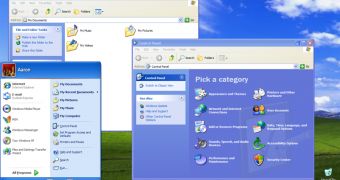Microsoft will stop releasing updates for Windows XP on April 8, 2014, so the company and security experts alike continue to remind users every once in a while that it’s critical to move to a newer OS.
This time, Wolfgang Kandek, CTO of Qualys, explained in a blog post on Microsoft’s next Patch Tuesday that Windows XP would most likely become a magnet for attackers, which makes it quite obvious that the switch to either Windows 7 or Windows 8 is critical.
“You should be phasing those out by now since they lose support for security patches in April of next year, similar to Office 2003 which will also lose support in April,” he said.
“Those operating systems and the Office suite will then start to accumulate unfixed vulnerabilities and become a magnet for attackers who will have access to easy-to-use and surefire tools to exploit setups that run on XP/2003 or that have Office 2003.”
Windows XP is at this point installed on nearly 33 percent of computers worldwide, which could be an indication that the transition to a newer platform won’t be completed before April 8, 2014.
Microsoft hopes to see Windows XP’s market share dropping to approximately 10 percent before the retirement date, as the company admitted that some users might indeed be sticking to this particular OS version beyond the retirement date.
While no other patches will be provided, custom support will actually be available for users paying lots of money for a premium subscription.
At the same time, Microsoft expects the share of Windows 8 to grow bigger significantly in the next few months, especially because more users dump the aging XP and go for the last version of its operating system.
The transition, however, is said to be quite pricey, with security vendor Avast estimating that each user would have to spend around $200 (€150) per computer.

 14 DAY TRIAL //
14 DAY TRIAL //